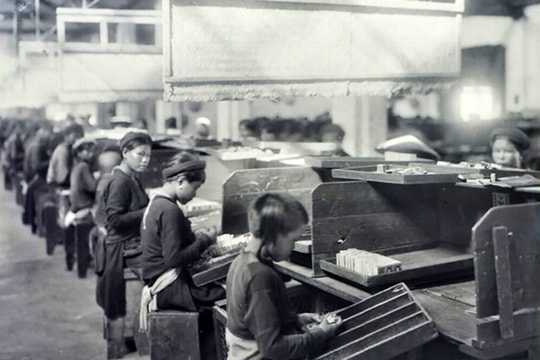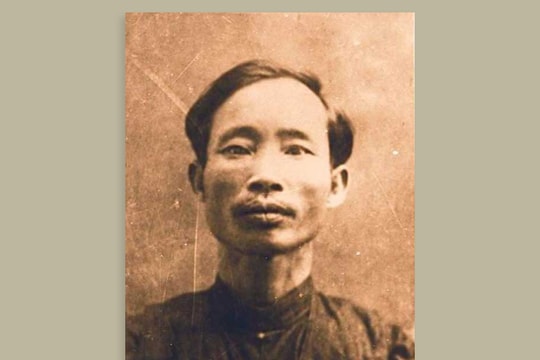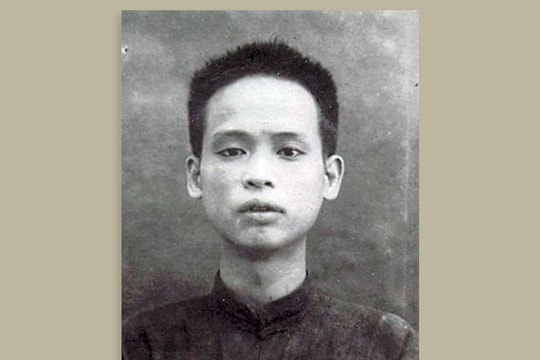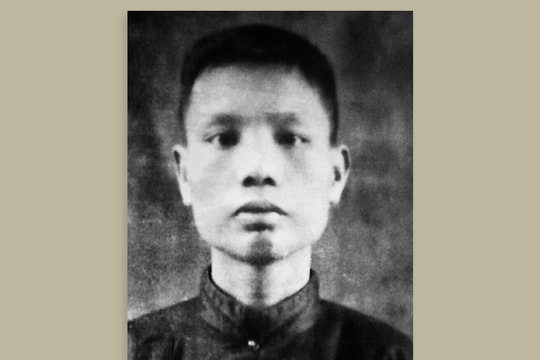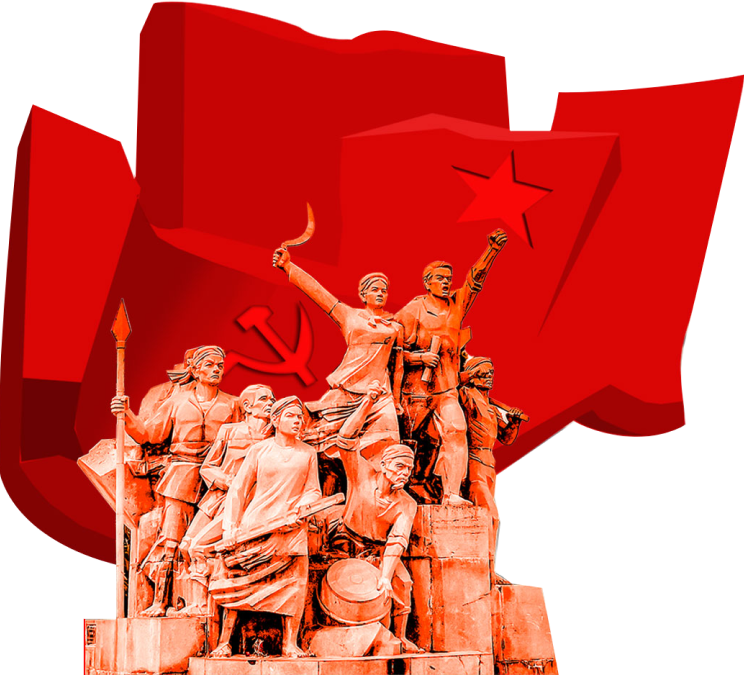Comrade Nguyen Thi Quang Thai (1915-1944)
Nguyen Thi Quang Thai is a shining example for many future generations of personality and morality of a devoted revolutionary soldier, striving and sacrificing for the cause of national liberation.
Nguyen Thi Quang Thai was born in 1915 at 132 Marechal Foch (now Quang Trung ward), Vinh city, Nghe An. Her father was Nguyen Huy Binh, from Nhan Chinh village (now Thanh Xuan district), Hanoi. Her mother was Do Thi Tho, from Duc Tung commune, Duc Tho district, Ha Tinh province. Because her father was a railway official, the family had to follow him from place to place. Her mother worked as a small trader to help her father raise 7 children.
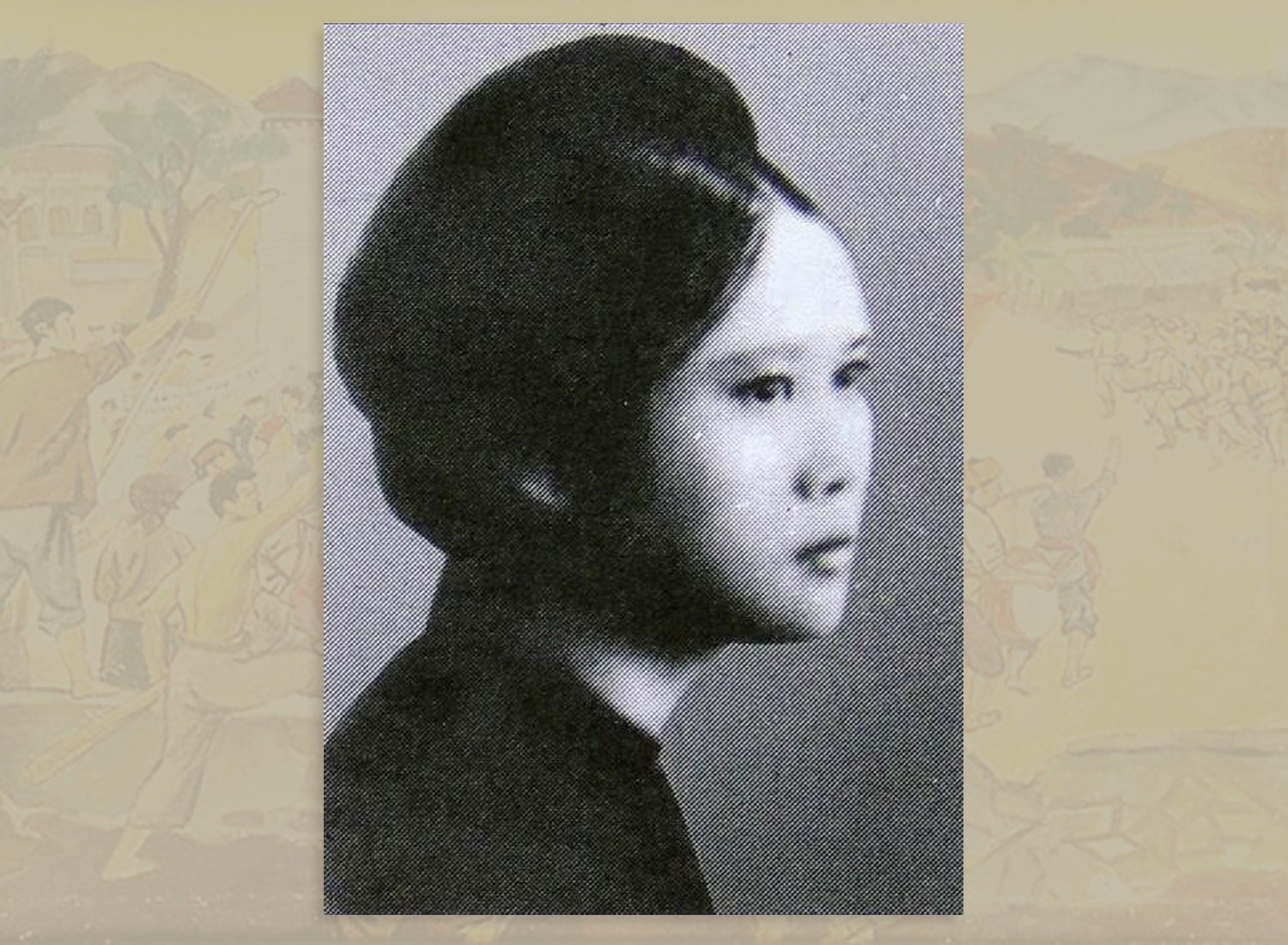
Nguyen Thi Quang Thai has an older sister, Nguyen Thi Minh Khai, who is 5 years older. In 1927,Nguyen Thi Minh KhaiEnlightened by the revolution by teacher Ha Huy Tap, she was admitted to the Hung Nam Association and elected to the Executive Committee of the Hung Nam Association, in charge of women. After finishing primary school, Ms. Minh Khai stayed at home to help her mother sell cloth at Vinh market and participated in patriotic activities in Vinh city. Nguyen Thi Quang Thai was soon guided on the revolutionary path by Nguyen Thi Minh Khai.
In 1929, after graduating from primary school in Vinh, Quang Thai was sent by her family to study at Dong Khanh Girls' School in Hue. Here, she enthusiastically participated in the student struggle movement under the leadership of the Tan Viet Party with the task of developing the "red girls' group". ComradeVo Nguyen Giapworking at “Quan Hai Tung Thu” (a publishing house sponsored by Tan Viet General Department), editing for “Tieng Dan” newspaper (edited by Mr. Huynh Thuc Khang), was the person who directly assigned tasks to Quang Thai. The two often met to discuss union work.
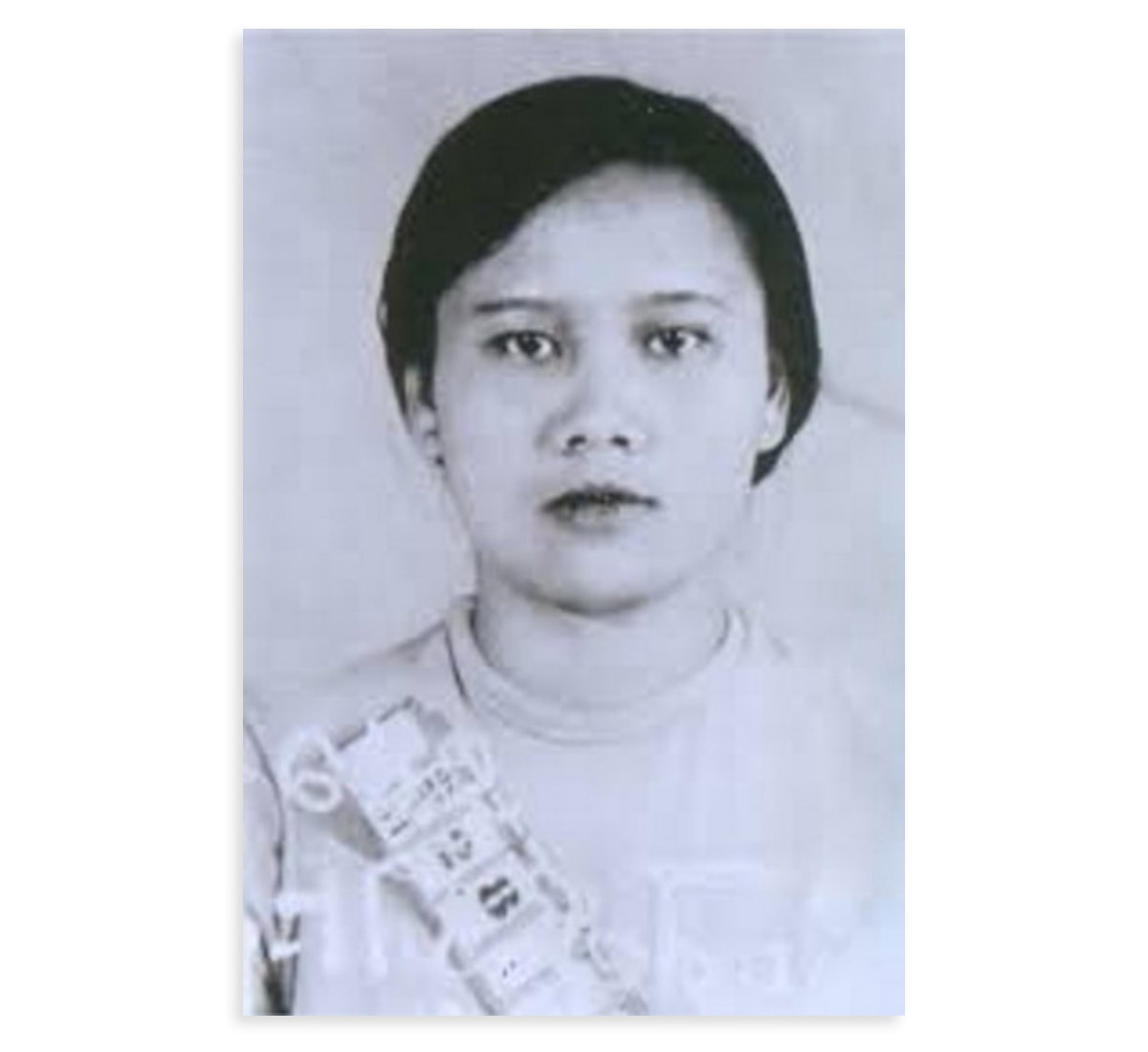
In 1931, discovering Nguyen Thi Quang Thai's patriotic activities, the French colonialists arrested her. Imprisoned in Thua Phu prison, at only 16 years old, she showed her indomitable spirit through the prison saying "Personne ne vous desnonce, ne desnoncez personne" (No one denounces you, you should not denounce anyone) and her heroic poem was spread throughout Thua Phu prison:
…Determined to sacrifice and die
Fight hard even if your head falls
The proletarian flag always flies
My soul smiles from the nine springs.
At the same time, comrade Vo Nguyen Giap was also imprisoned in Thua Phu prison and sentenced to 2 years in prison for writing propaganda articles for Marxism in the newspaper “Tieng Dan”. When passing by the women's prison, Vo Nguyen Giap realized that Quang Thai was also imprisoned there.
At the end of 1931, Quang Thai and many Tan Viet cadres such as Vo Nguyen Giap, Vo Thuan Nho, Dang Thai Mai... were released early due to the French Red Relief Association's struggle to release political prisoners. She was expelled from Hue and placed under local house arrest. Returning to Vinh, she helped her mother sell goods at the market and participated in revolutionary activities.
After being released from prison, Vo Nguyen Giap and Quang Thai often met each other. Their love was nurtured by the same ideals in life and by experiencing difficult challenges.
On September 28, 1935, the wedding of the two comrades was held in Vinh. After the wedding, the couple moved to Hanoi to live and continue their revolutionary activities. Nguyen Thi Quang Thai passed the entrance exam to Hanoi Medical University with excellent results, but she was expelled from school due to her participation in revolutionary activities among students. When the National Language Propagation Association was established, she directly participated in building the Association, propagandizing, mobilizing and organizing classes.
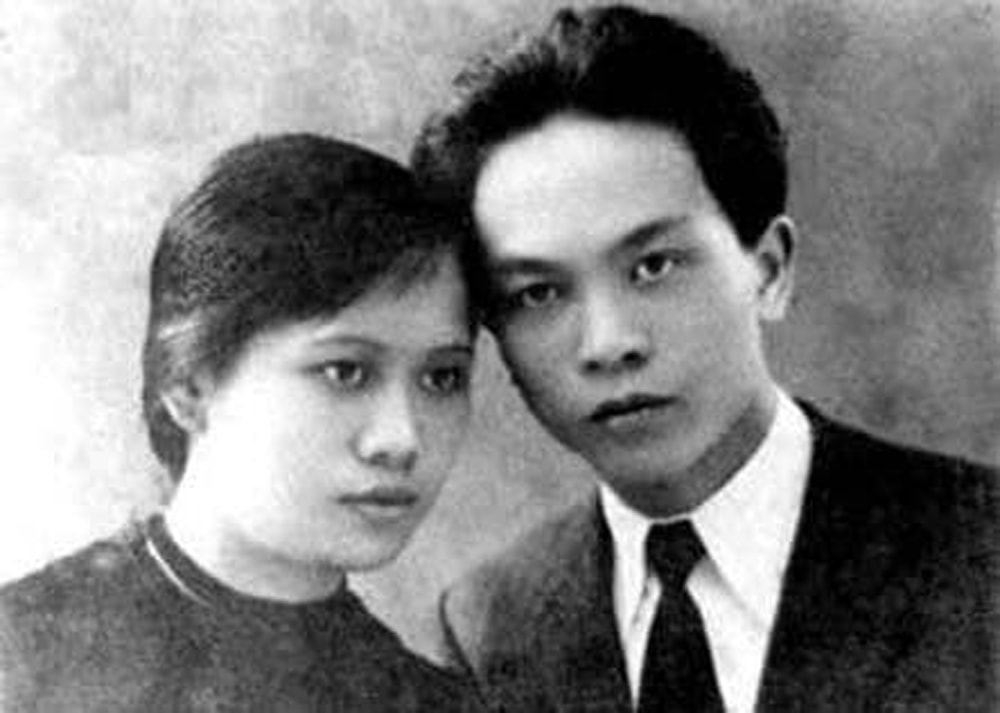
World War II broke out in early 1940, the French colonialists intensified their terror and repression of revolutionary movements in the colonies, especially in Vietnam. Our Party's activities had to retreat into secret activities. At the request of the Party, comrade Vo Nguyen Giap was sent to China to work with comrade Pham Van Dong. At that time, their eldest daughter, Vo Hong Anh, was still too young, so Quang Thai could not go with her to work secretly as promised. She encouraged her husband: "This is a great opportunity. If the superiors want you to escape, you should be determined. You and your mother can take care of yourself. When your child grows up a little bit, I will send him to my grandparents to raise, and I will go later." The encouragement gave comrade Vo Nguyen Giap more strength to leave. Later, he confided to his daughter, Hong Anh: "If that time, your mother was not determined and gave me more faith and strength, I probably would not have been able to leave you and your mother."
Due to the condition of secrecy, the couple agreed to meet at 5 pm (early May 1940), at Co Ngu Street (now Thanh Nien Street - Hanoi). In the short farewell, Quang Thai held his daughter Hong Anh, who was not yet a year old, and told her husband to take care of his health, be careful in secret activities and find a way to let his family know. Comrade Vo Nguyen Giap also did not expect that this would be the last farewell with Quang Thai.
After her husband left, she sent her children to her mother-in-law in Quang Binh to take care of them so that she could participate in revolutionary activities. She was a liaison officer of the Party Central Committee. In 1941, the French colonialists held a military trial against Nguyen Thi Minh Khai in Saigon. Quang Thai went to Saigon to hire a lawyer to defend her and tried every way to visit Minh Khai in prison.
Nguyen Thi Minh Khai was sentenced to death. Before passing away, she wrote a letter to encourage her parents and told her siblings: "Study hard to become a worthy person in life."
Returning to Vinh, Ms. Quang Thai stayed at her mother's house to participate in revolutionary activities. The French colonialists always monitored her and those who entered and left her house. On June 1, 1942, they raided and arrested a revolutionary cadre and arrested her. The Hanoi Criminal Court sentenced her to 16 years in prison and imprisoned her in Hoa Lo Prison. Here, despite being brutally tortured in an attempt to find a line of communication with comrade Hoang Van Thu (Standing Committee member of the Central Committee of the Indochinese Communist Party), she still did not reveal a word. She took care of, encouraged, organized cultural and French language lessons for her sisters and comrades, and resolutely fought to the end, against the harsh prison regime and against the oppression of prisoners.
At the end of 1943, a typhoid epidemic broke out in Hoa Lo Prison. With the knowledge she had learned in a short time at medical school, she devoted herself to taking care of patients without fear of danger. Knowing that she was infected and unlikely to survive, she asked her mother-in-law to bring Hong Anh out for a final meeting. The two of them had to turn back halfway on the train because the railway was bombed.
Thanks to the fierce struggle of all political prisoners in Hoa Lo prison, the prison guards transferred her to “Lam Phuc hospital” (Robin hospital, now Bach Mai hospital) for treatment. However, due to her weak health, she died on January 29, 1944, at the age of 29, and the revolution was finally successful.
Nguyen Thi Quang Thai's funeral was simple, secret and difficult but very thoughtful. She was laid to rest in a small cemetery in Tuong Mai village, Hanoi. Some time after the liberation of the South, her grave was moved to Mai Dich cemetery by the Central Party Office.
After going to China to meet leader Nguyen Ai Quoc, Comrade Vo Nguyen Giap received the task of building a war zone in Cao - Bac - Lang and building the Vietnam People's Army. Due to the secret operation conditions, it was not until mid-April 1945, during the Northern Revolutionary Military Conference in Hiep Hoa district (Bac Giang province), that Comrade Vo Nguyen Giap heard the news of Quang Thai's sacrifice. He was speechless and could not believe it was true.
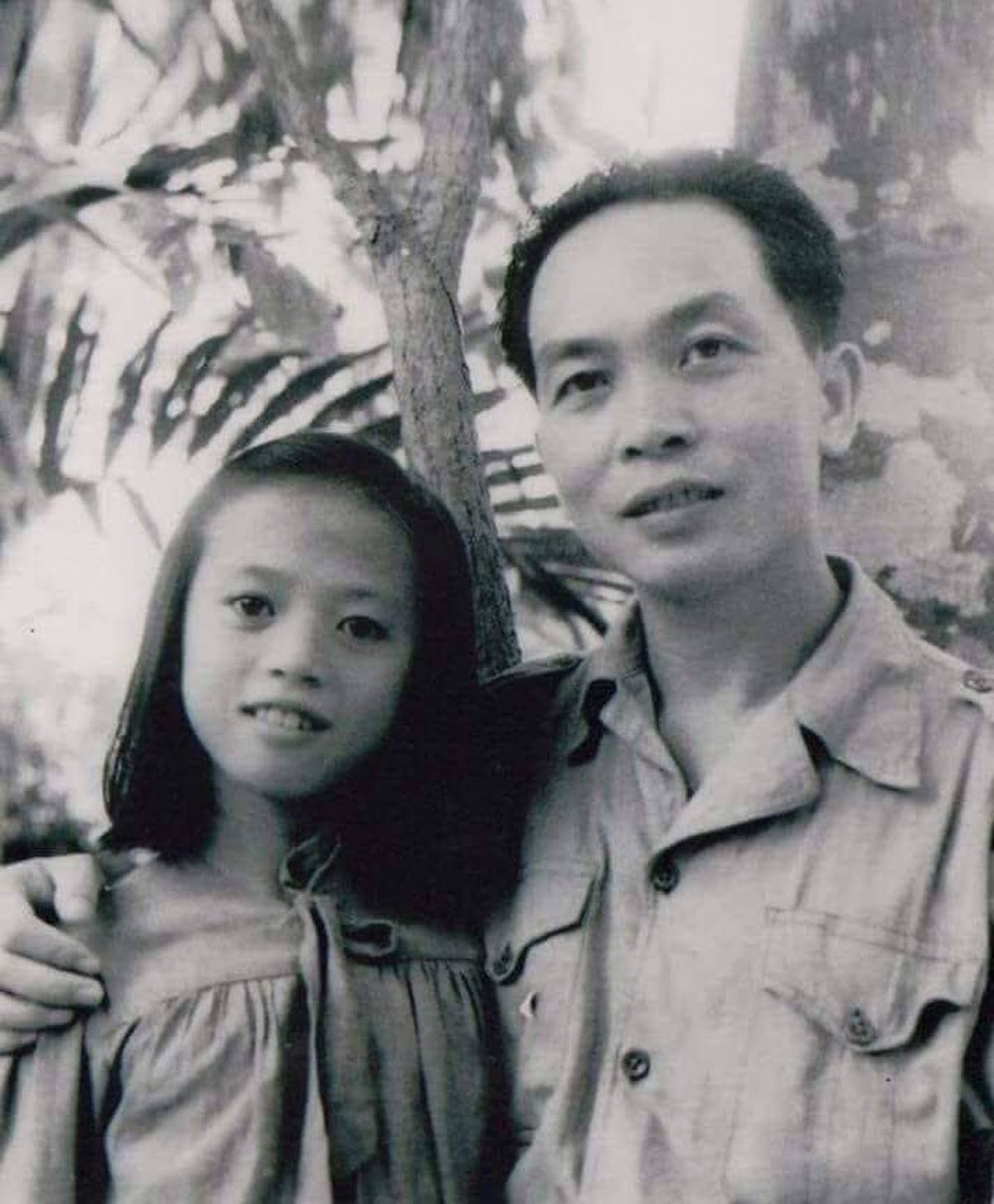
Vo Hong Anh's daughter was taken care of by her grandparents in Quang Binh. She only imagined her mother Quang Thai through the stories of her grandparents and father. Not letting her parents down, she graduated from the Physics Department of Lomonosov University (in 1965), successfully defended her PhD thesis in Mathematics and Physics (in 1982) and was the first woman in the field of Physics in Vietnam to be awarded the Kovaleskaia Prize (in 1988).
Nguyen Thi Quang Thai is a shining example for many future generations of personality and morality of a devoted revolutionary soldier, striving and sacrificing for the cause of national liberation.

